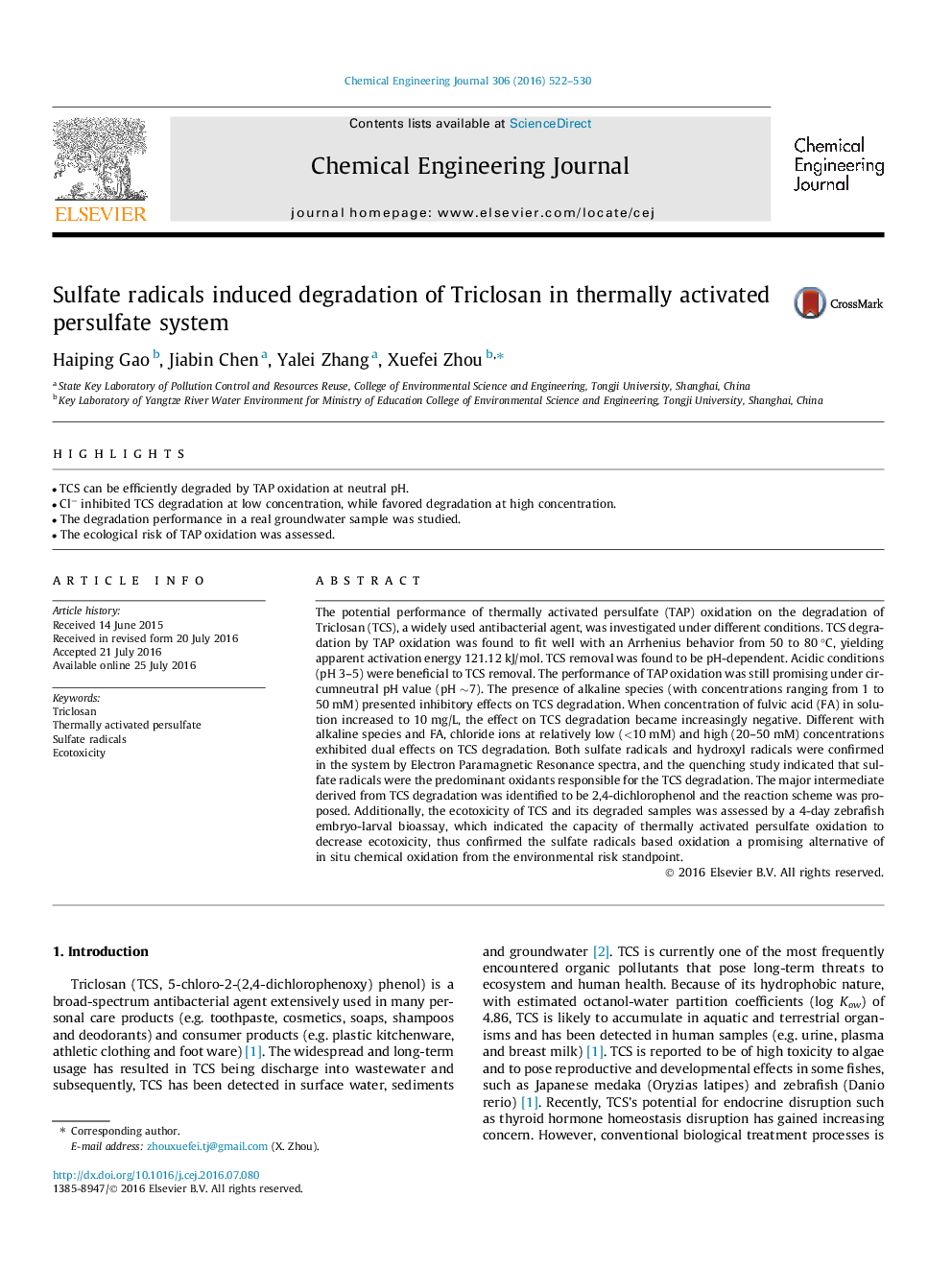| کد مقاله | کد نشریه | سال انتشار | مقاله انگلیسی | نسخه تمام متن |
|---|---|---|---|---|
| 145268 | 456336 | 2016 | 9 صفحه PDF | دانلود رایگان |
• TCS can be efficiently degraded by TAP oxidation at neutral pH.
• Cl− inhibited TCS degradation at low concentration, while favored degradation at high concentration.
• The degradation performance in a real groundwater sample was studied.
• The ecological risk of TAP oxidation was assessed.
The potential performance of thermally activated persulfate (TAP) oxidation on the degradation of Triclosan (TCS), a widely used antibacterial agent, was investigated under different conditions. TCS degradation by TAP oxidation was found to fit well with an Arrhenius behavior from 50 to 80 °C, yielding apparent activation energy 121.12 kJ/mol. TCS removal was found to be pH-dependent. Acidic conditions (pH 3–5) were beneficial to TCS removal. The performance of TAP oxidation was still promising under circumneutral pH value (pH ∼7). The presence of alkaline species (with concentrations ranging from 1 to 50 mM) presented inhibitory effects on TCS degradation. When concentration of fulvic acid (FA) in solution increased to 10 mg/L, the effect on TCS degradation became increasingly negative. Different with alkaline species and FA, chloride ions at relatively low (<<10 mM) and high (20–50 mM) concentrations exhibited dual effects on TCS degradation. Both sulfate radicals and hydroxyl radicals were confirmed in the system by Electron Paramagnetic Resonance spectra, and the quenching study indicated that sulfate radicals were the predominant oxidants responsible for the TCS degradation. The major intermediate derived from TCS degradation was identified to be 2,4-dichlorophenol and the reaction scheme was proposed. Additionally, the ecotoxicity of TCS and its degraded samples was assessed by a 4-day zebrafish embryo-larval bioassay, which indicated the capacity of thermally activated persulfate oxidation to decrease ecotoxicity, thus confirmed the sulfate radicals based oxidation a promising alternative of in situ chemical oxidation from the environmental risk standpoint.
Journal: Chemical Engineering Journal - Volume 306, 15 December 2016, Pages 522–530
